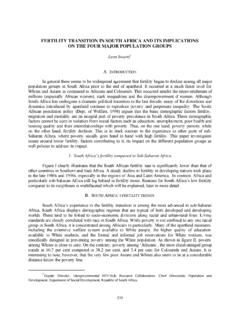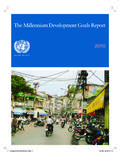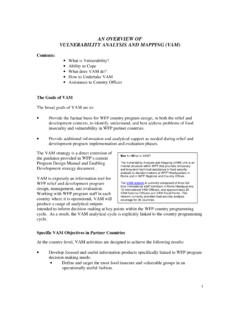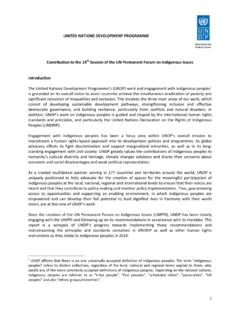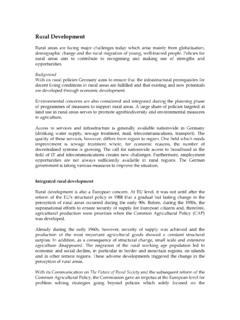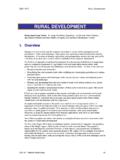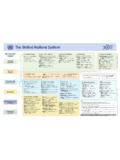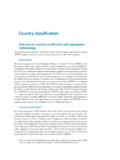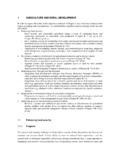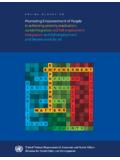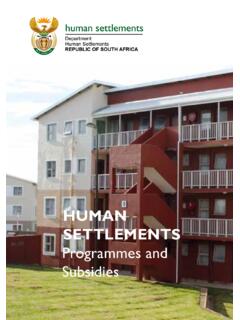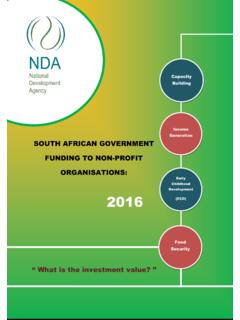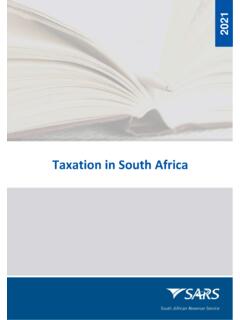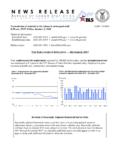Transcription of Implementing Water, Sanitation and Hygiene (WASH)
1 02 wash eng:01 issue briefs 17/12/14 11:29 P gina 1. Implementing Water, Sanitation and Hygiene (WASH). Information brief Why WASH? One of the world's most urgent issues is lack of safe water, Sanitation and Hygiene . Water-related improvements are crucial to meet the development goals, reduce child mortality, and improve health in a sustainable way. Quick facts billion people lack access to improved Sanitation . 748 million people lack access to an improved source of drinking water. 1 billion people practice open defecation.
2 Nine out of 10 live in rural areas, but the number in urban areas is increasing. Half the countries did not report on access to adequate Sanitation in schools or health-care facilities, suggesting a lack of monitoring systems and capacity. 34% of primary schools and 25% of rural health-care centres lack improved Sanitation facilities. For more information: WHO and UNICEF (2014), GLASS (2012). Commitment to progress In July 2014 the UN Open Working Group (OWG) proposed a Sustainable Development Goal (SDG) to Ensure availability and sustainable management of water and Sanitation for all.
3 Sustainable Development Goals: Targets related to WASH. by 2030 end the epidemics of AIDS, tuberculosis, malaria, and neglected tropical diseases and combat hepatitis, water-borne diseases, and other communicable diseases. by 2030 substantially reduce the number of deaths and illnesses from hazardous chemicals and air, water, and soil pollution and contamination. by 2030 achieve universal and equitable access to safe and affordable drinking water for all. by 2030 achieve access to adequate and equitable Sanitation and Hygiene for all, and end open defecation, paying special attention to the needs of women and girls and those in vulnerable situations.
4 By 2030 expand international cooperation and capacity-building support to developing countries in water and Sanitation related activities and programmes, including water harvesting, desalination, water efficiency, wastewater treatment, recycling and reuse technologies. support and strengthen the participation of local communities for improving water and Sanitation management. Source: OWG (2014). UN-Water Decade Programme on Advocacy and Communication (UNW-DPAC) 1. 02 wash eng:01 issue briefs 17/12/14 11:29 P gina 2.
5 Implementing Water, Sanitation and Hygiene (WASH) Information brief The target builds on the Millennium Development Goal (MDG) Target 7C, expanded to include Hygiene , and non-domestic settings. Only half of development aid for To achieve this we must: Sanitation and drinking-water is targeted to the MDG regions Eliminate open defecation; sub- Saharan Africa, Southern Asia and South-eastern Asia where 70%. Provide universal access to basic drinking water, Sanitation and of the global unserved live. Sector Hygiene for households, schools and health facilities; budget support from donors for Halve the population without access at home to safely managed WASH is less than 5% of total WASH.
6 Drinking water and Sanitation services; aid. Only 7% of aid is directed at maintaining services. (GLAAS 2012). Eliminate inequalities in access to services by population groups. Challenges Financing and budgeting process Insufficient financing and need for improved targeting and budgeting processes, possibly due to poor absorption capacity difficulties in spending funds that are received. Generally the national budget allocations to Sanitation and drinking water are insufficient to meet government targets to provide services to the unserved as well as to maintain existing services.
7 In addition, investment decisions often do not respond to needs, and issues of equity are often not addressed. The problem is greatest where the coverage is lowest. Generating revenue through tariffs is often difficult. In most developing countries tariff structures for water are insufficient to cover basic operation and maintenance. funding is not always targeted to those in need: just one third of countries consistently applies equity criteria in funding allocations for Sanitation and drinking water. Improved priority-setting and targeting of development aid remains a challenge and budget allocation tends to favour urban areas.
8 Drinking-water continues to absorb the majority of WASH funding while insufficient funding for operation and maintenance undermines the sustainability of services. In Brazil, local authorities must show that they have capacity to use budget allocations before funds are disbursed. Disadvantaged areas often lack human resources to manage the above processes, so they will not qualify for budget allocations. These conditions must be coupled with mechanisms of support and capacity enhancement. Source: UN Special Rapporteur on the Human Right to Safe Drinking Water and Sanitation (2014).
9 We must improve the budgeting process. When funds are transferred from national to sub-national government , issues may arise: 1) Substantial delays in disbursement of funds at all levels of government . 2) Problems of leakage (funds being improperly diverted). The World Bank and many other institutions and organizations have used the Public Expenditure Tracking Survey (PETS) methodology to identify leakages. Source: UN Special Rapporteur on the Human Right to Safe Drinking Water and Sanitation (2014). 2 UN-Water Decade Programme on Advocacy and Communication (UNW-DPAC).
10 02 wash eng:01 issue briefs 17/12/14 11:29 P gina 3. Information brief Implementing Water, Sanitation and Hygiene (WASH). Water governance On the governance side, sustainability remains a serious challenge. Deficient institutional and administrative structures, lack of political will, accountability and lack of stakeholder engagement are part of the problem. For instance, most countries do not include consumers in planning, and only half have established regular review processes. Cost-efficient investments Making programmes cost-efficient is an important challenge.
